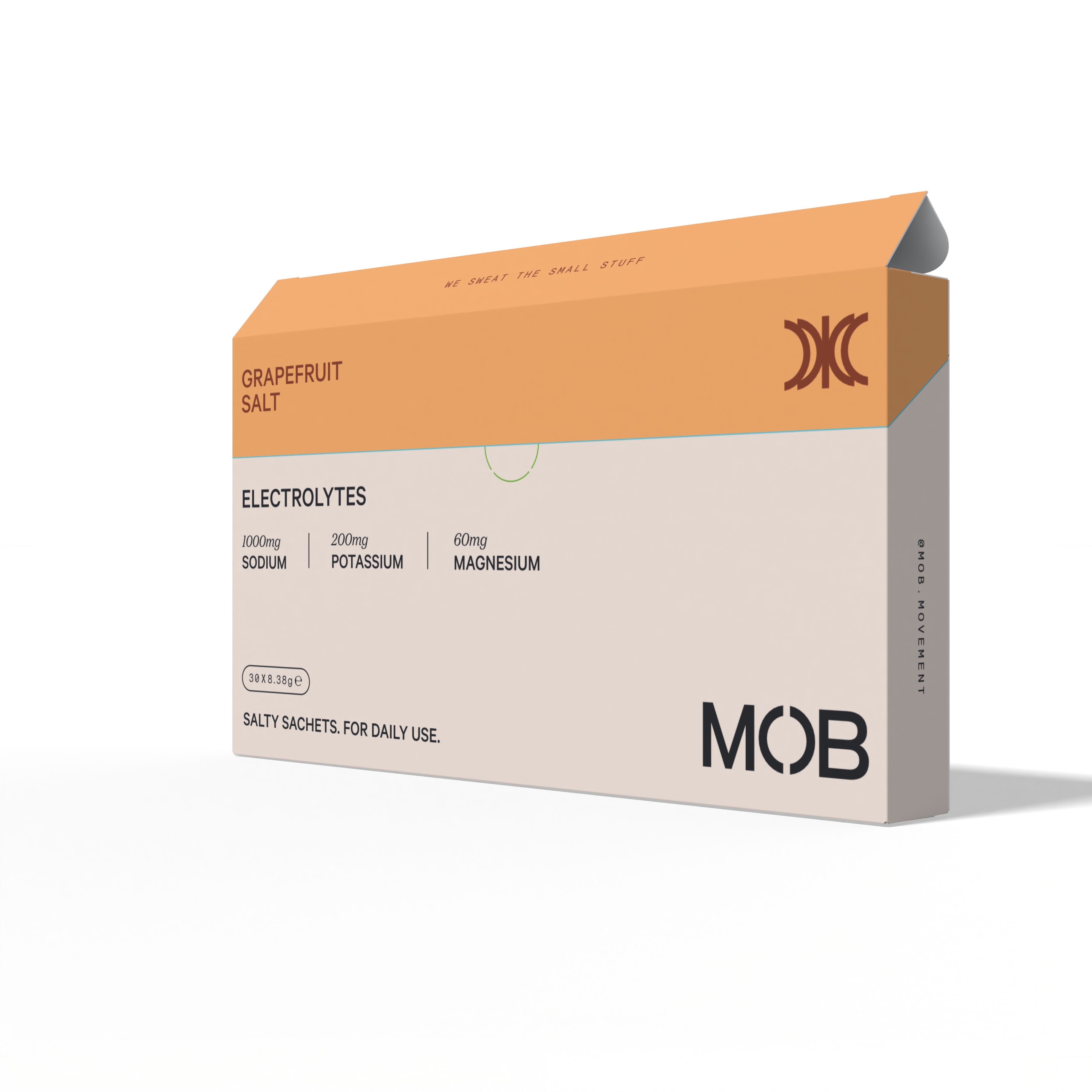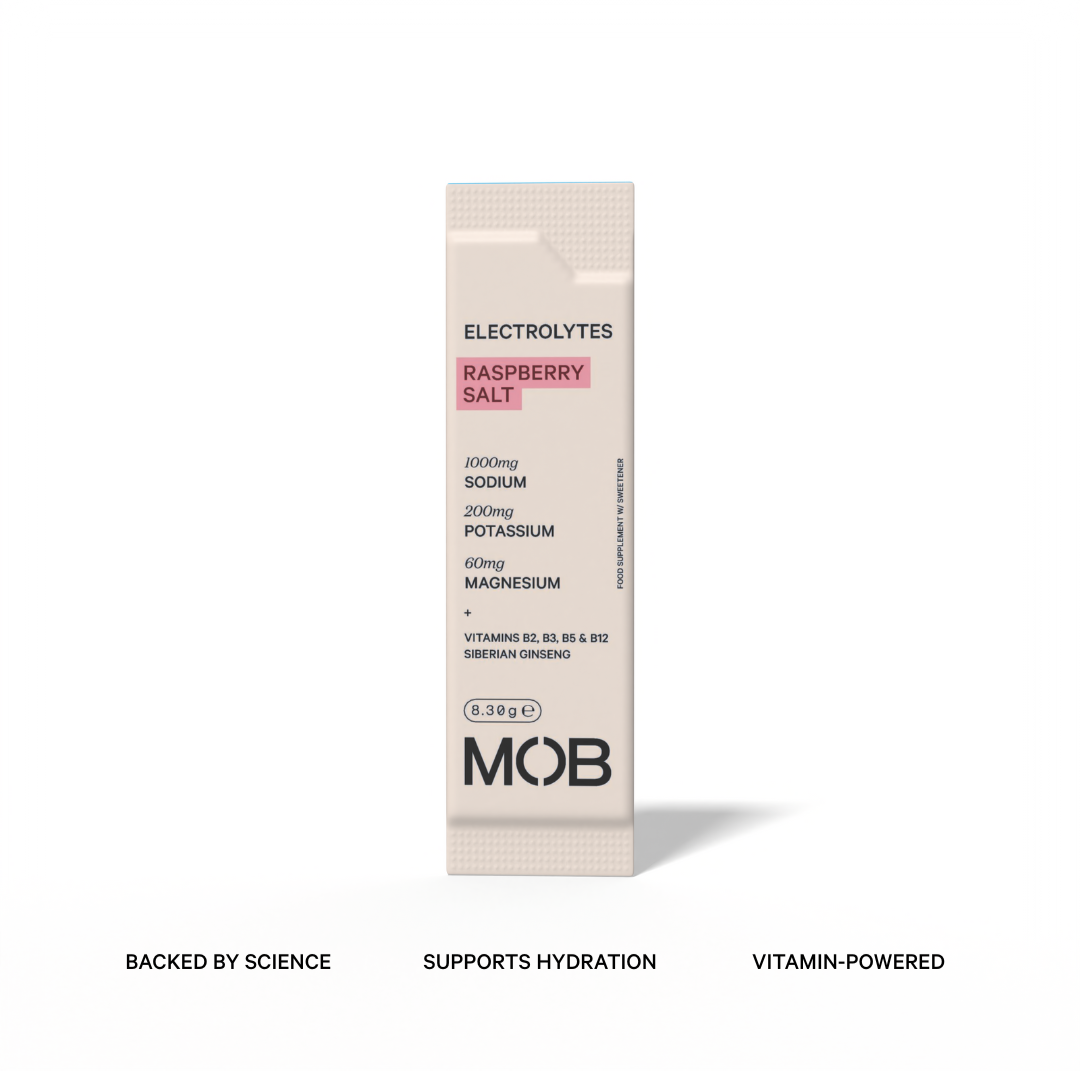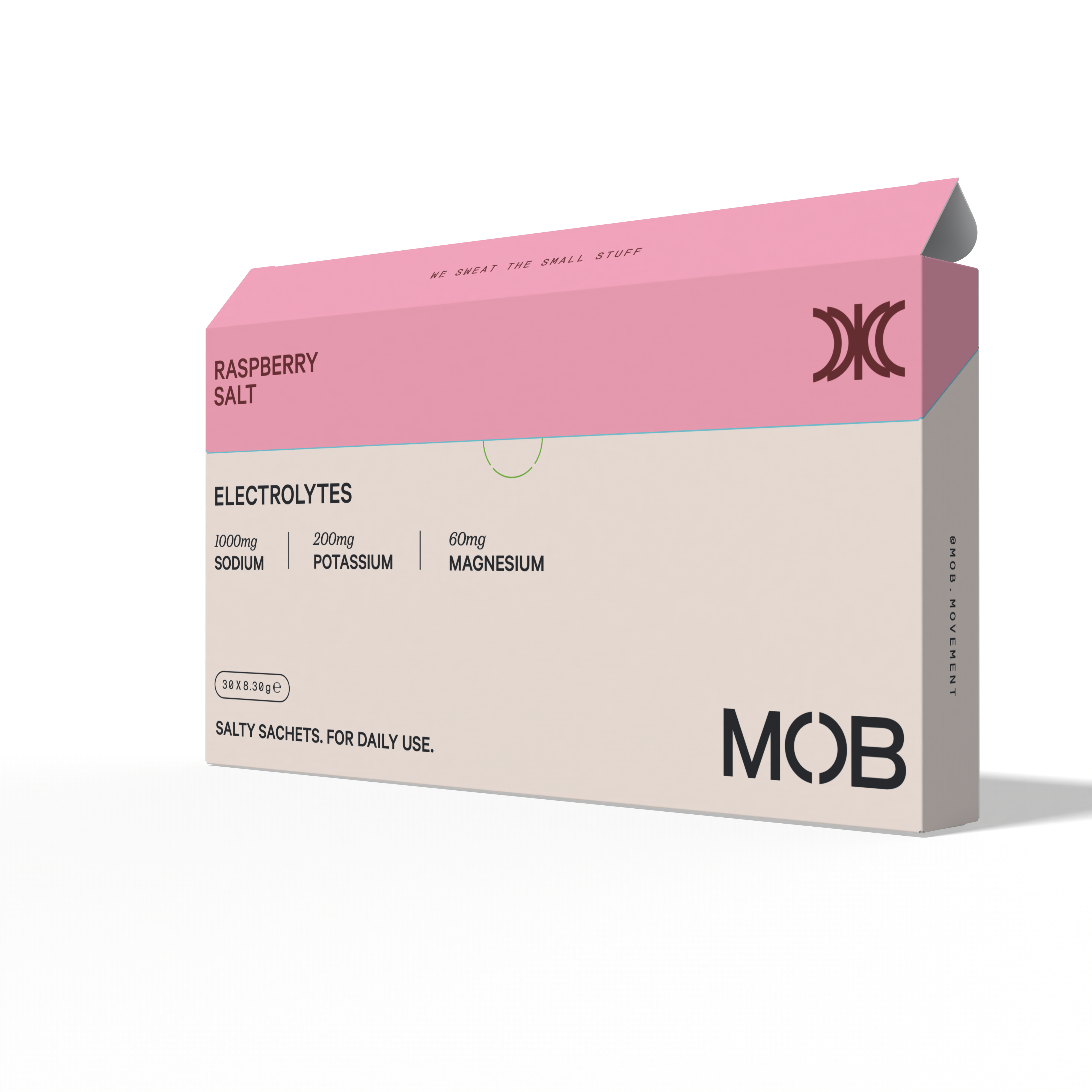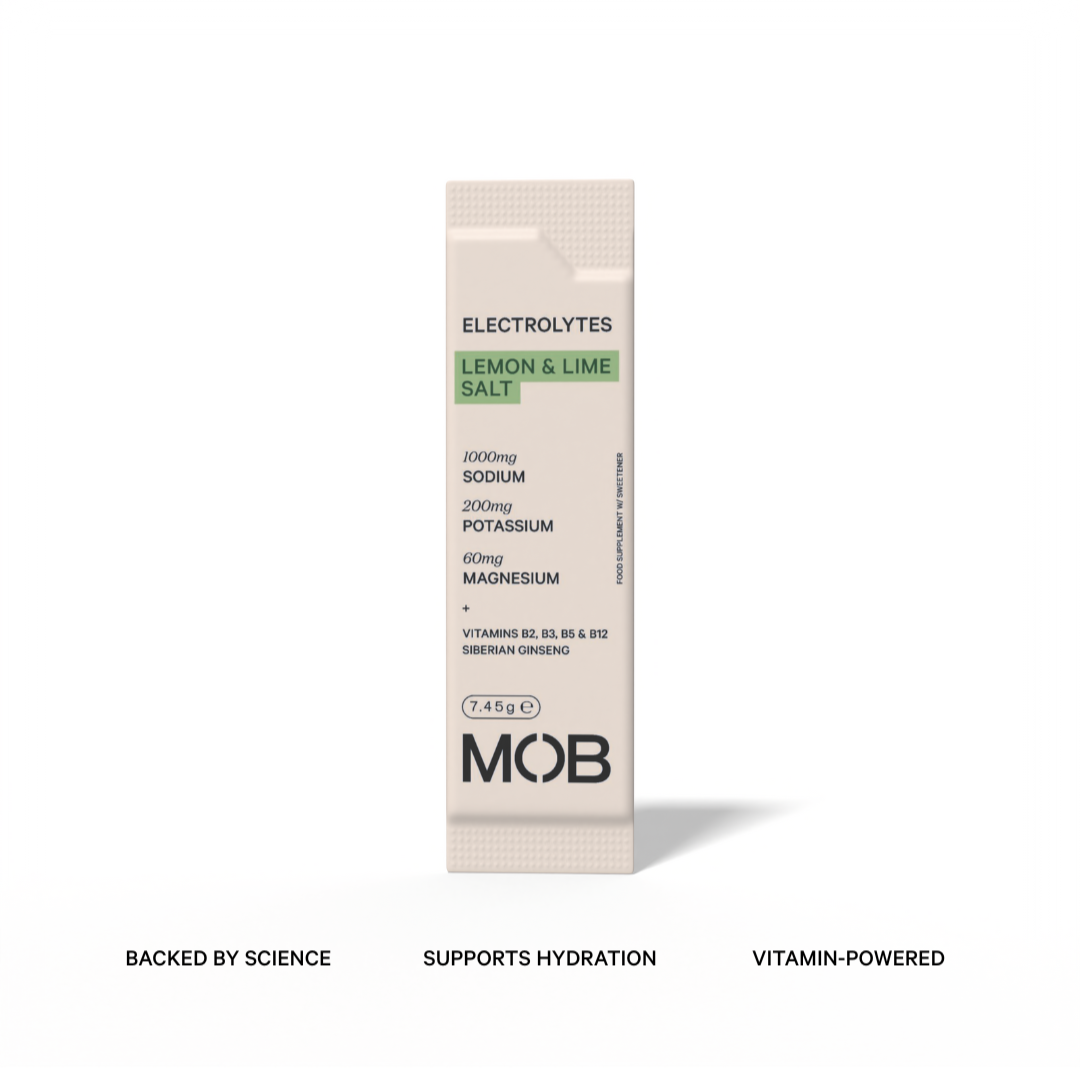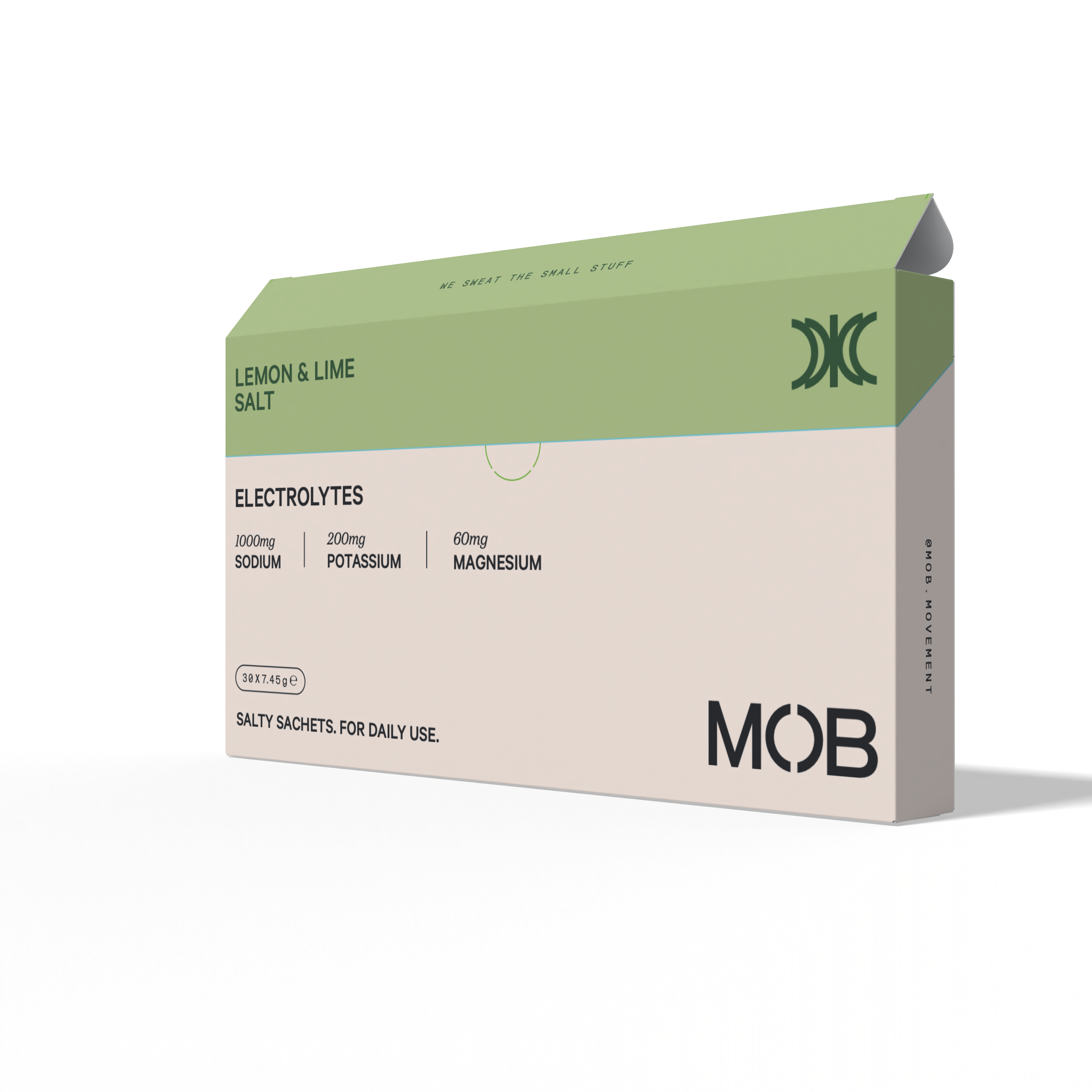In today’s culture of high-output living, it’s common to feel mentally overloaded and physically depleted - even when you're taking care of yourself. That’s where adaptogens come in. Often touted as natural stress-buffers or performance boosters, they’ve built up a reputation that’s part wellness trend, part traditional medicine, and part misunderstood science.
At MOB, we looked closely at the research before including Siberian ginseng (Eleutherococcus senticosus) in our formula. This article explores what the studies say about its potential role in supporting mental focus, physical performance, and the body’s response to stress.
What Even Is an Adaptogen?
Adaptogens are natural substances, often herbs or roots, that may support the body’s ability to maintain balance during periods of physical or mental stress. Unlike stimulants or sedatives, which trigger a strong reaction, adaptogens appear to work more gradually, supporting normal physiological function under pressure. (Panossian and Wikman 181–83).
They’ve been used in traditional Chinese and Russian medicine for centuries, but in recent years they’ve gained attention in the performance and recovery space.
Why We Chose Siberian Ginseng
Among the many adaptogens available, Siberian ginseng stood out for a few reasons:
-
It has a growing body of research behind it.
-
It’s well-tolerated and non-stimulating.
-
It shows potential in supporting mental focus and physical performance during periods of fatigue.
Research suggests that Siberian ginseng may support the body’s normal stress response through its effects on the hypothalamic–pituitary–adrenal (HPA) axis, which helps regulate how the body reacts to physical and mental challenges. (Panossian and Wikman 183–85).
Cognitive Benefits Under Stress
In settings where focus matters - whether in training, work, or daily life - mental fatigue can limit performance. A placebo-controlled study found that participants taking Siberian ginseng maintained better accuracy and attention during cognitive tasks compared with a control group, suggesting potential benefits for sustained focus(Kennedy et al. 280).
Unlike caffeine, Siberian ginseng doesn’t stimulate the nervous system but may help maintain attention and concentration during tasks that require prolonged effort.
Physical Performance and Endurance
Some studies suggest that Siberian ginseng may support physical performance and endurance, particularly during periods of heavy training or fatigue. One study involving trained athletes showed improved work capacity and reduced recovery time, particularly during periods of increased training load (Asano et al. 254).
It’s not a replacement for proper training, sleep, or nutrition, but it may help support the body’s ability to perform and recover when demands are high.
So... Hype or Help?
Like many trending ingredients, adaptogens come with big claims. But when you look past the buzz, Siberian ginseng holds up better than most.
-
Research indicates that Siberian ginseng may help maintain mental performance during fatigue
-
It may support the body’s normal stress response
-
It’s well-tolerated for daily use and is non-stimulating
That’s why we included it in MOB’s formula - to support mental clarity and balance when life and training get demanding.
Conclusion
We didn’t build MOB to follow trends. We built it to support how your body functions every day. Siberian ginseng adds an adaptogenic element that helps maintain focus and balance when demands are high.
It’s not about quick fixes. It’s about ingredients that make a difference where it counts. Explore the full range or try the variety pack to see how MOB helps you stay on track, mentally and physically.
Disclaimer:
Siberian ginseng (Eleutherococcus senticosus) contributes to normal physical and mental performance and helps support the body during periods of fatigue or stress.
A food supplement should not be used as a substitute for a varied and balanced diet or a healthy lifestyle.
Works Cited
Asano, Kazuhito, et al. “Effect of Eleutherococcus Senticosus on Human Physical Performance.” Clinical Pharmacology and Therapy, vol. 33, no. 2, 1983, pp. 254–261. https://doi.org/10.1038/clpt.1983.29
Kennedy, David O., et al. “Attenuation of Laboratory-Induced Mental Fatigue in Humans by Panax Ginseng, Ginkgo Biloba and Eleutherococcus Senticosus: A Randomised, Double-Blind, Placebo-Controlled, Cross-Over Trial.” Psychopharmacology, vol. 195, no. 1, 2007, pp. 139–148. https://doi.org/10.1007/s00213-007-0886-6
Panossian, Alexander, and Georg Wikman. “Effects of Adaptogens on the Central Nervous System and the Molecular Mechanisms Associated with Their Stress—Protective Activity.” Pharmaceuticals, vol. 3, no. 1, 2010, pp. 188–224. https://doi.org/10.3390/ph3010188



